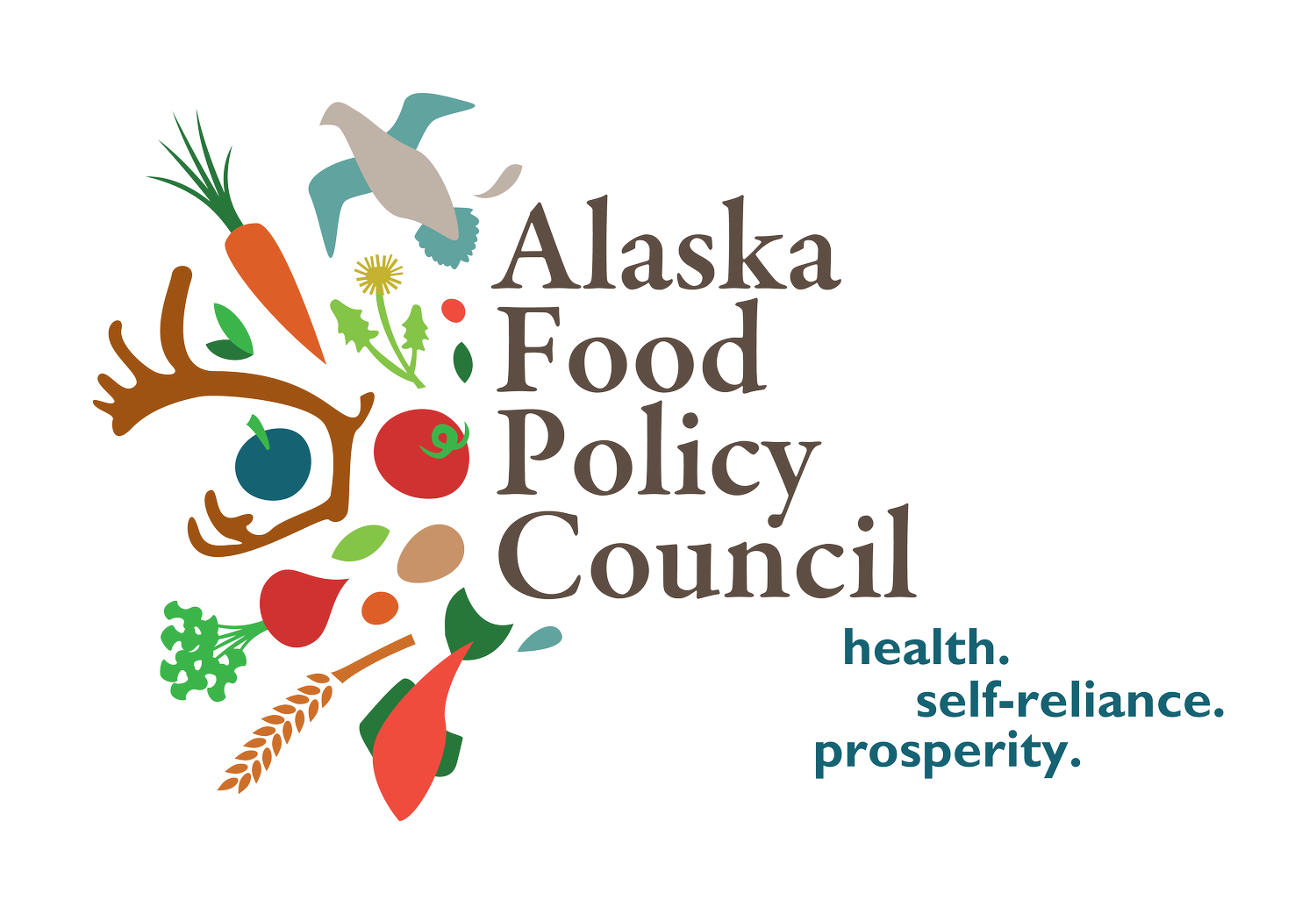We All Eat: Preparing for the Future Through Food
Guest blog by Lunia E. Oriol, AFPC Intern - 2023-2024 AK Food Strategy Task Force (one of many roles and talents)
Lunia E. Oriol was born in Fairbanks and raised in Wasilla until relocating to the Lower 48 to complete a BSE in Climate and Meteorology and a Master of Urban and Regional Planning (MURP) at the University of Michigan - Ann Arbor. She is passionate about co-creating responsible and innovative strategies to transform food systems, and she aspires to work with local communities at the intersection of food systems and hazard mitigation planning. For questions or comments, she is reachable by email at leorio@umich.edu
The Matanuska-Susitna Borough (MSB), a second-class borough in Southcentral Alaska, is experiencing many changes. Actively sought out for its low housing costs, ample land, recreation opportunities, and “small-town” feel, the MSB’s population is rapidly growing. By 2050, it is expected to hold nearly 20% of the state’s population, which will not only put pressure on existing infrastructure and public services but also increase the demand for food.
Additionally, changing environmental conditions—greater precipitation variability, lengthening summer seasons, and warmer winters, for example—are impacting food security. On the one hand, these changes could worsen the impact of currently experienced disasters (e.g., wildfires, floods, etc.) or create new threats whose impacts are uncertain (e.g., northward migration of invasive species). With over 90% of the food Alaskans consume estimated to be shipped into the state, these changes could exacerbate current weaknesses in an already vulnerable supply chain.
On the other hand, statewide warming conditions may be conducive to agricultural food production. For the MSB, historically Alaska’s agricultural “heartland,” there’s an emerging opportunity to grow more fresh and local food, which could improve the local economy and public health. However, if not properly planned for, agricultural expansion could be at the expense of the MSB’s wildlife, natural resources, and traditional ways of life.
As an urban and regional planning student (with a background in meteorology and climate science), my program required the completion of a client-based planning project. For my project, I wanted to explore how food systems planning could be utilized to address food security in the borough, where I grew up. In early 2023, I partnered with the MSB Planning and Land Use Department as it was updating its Comprehensive Plan, a long-range planning document that encapsulates the borough’s vision and goals for being the best community in Alaska to live, work, and play. This was an opportune moment to collaborate, especially when approximately 10% of the population experiences food insecurity. I would spend a year working alongside MSB planners to assess whether and how borough residents supported policies that would increase food security, protect natural community assets, and invest in resiliency planning.
Through research, a community-wide survey, public workshops, and stakeholder interviews, it became clear that communities in the MSB wanted to see their borough government prioritize food security. They desired more food-related land uses near their residences (e.g., agriculture, farmers markets, grocery stores, etc.), and they wanted the MSB to focus on food systems resilience through actions such as tax incentives for local agricultural businesses, public green spaces, and buffers, community-based emergency response teams and training, and diversified transportation and food networks.
However, the MSB is still defining its role of government to meet the diverse needs of its thirty communities, which influences what it can and should do to be as efficient as possible. Rather than propose a definitive list of solutions, my report, “We All Eat: Preparing for the Future Through Food,” recognizes the many roles that local Alaskan governments like the MSB assume, which may include: creating plans, performing research and assessments, developing regulation, providing public services, establishing partnerships on projects, and investing in public initiatives or programs. In my framework, which was developed from the public engagement results, any combination of these “roles” can be leveraged to develop food security solutions (see Chapter Five: Building a Resilient Food System).
With the report as a resource, the MSB’s updated comprehensive plan can set the stage for building local food security, joining other borough governments already involved in food systems planning. The work doesn’t end there, however: the MSB will have to regularly consult and work with food producers and wild food harvesters, City and Tribal governments, emergency services, community organizations, and more to create a resilient and equitable food system for all.
Disclaimer: Lunia E. Oriol is not affiliated with the Matanuska-Susitna Borough. The document “We All Eat: Preparing for the Future Through Food” is not a legally binding document and is meant strictly to inform and guide the comprehensive planning process unless otherwise stated by the Matanuska-Susitna Borough.






